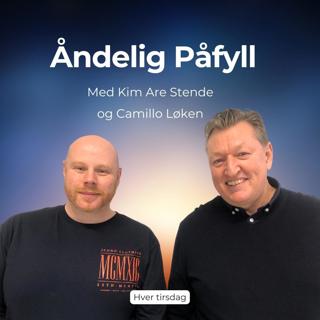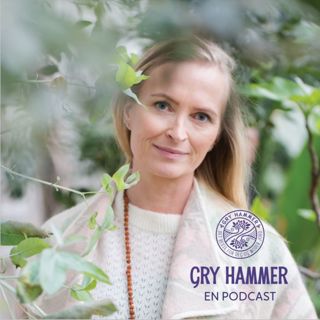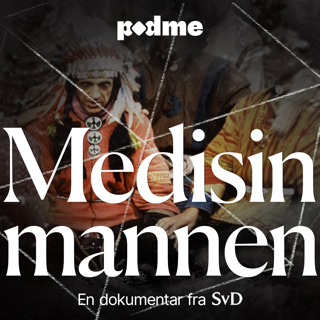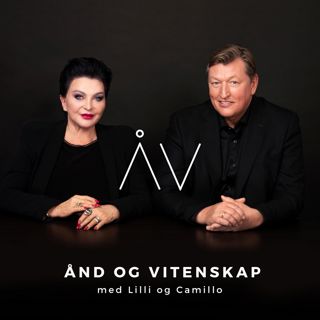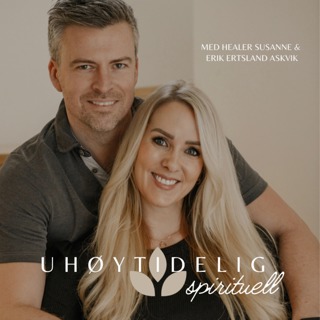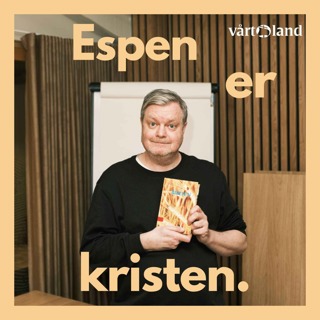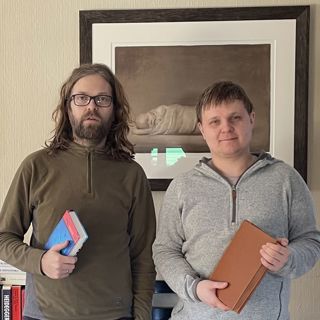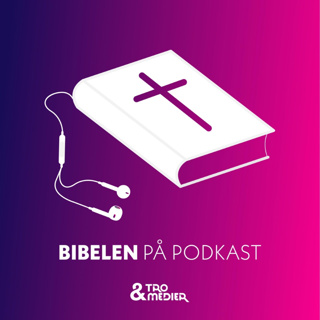![Avital Chizhik-Goldschmidt: Non-Fiction [Summer Unwind 1/3]](https://cdn.podme.com/podcast-images/D79089FBEF78B78B9B1A2A8AFD27F6A1_small.jpg)
Avital Chizhik-Goldschmidt: Non-Fiction [Summer Unwind 1/3]
In this episode of the 18Forty Podcast, we talk to Avital Chizhik-Goldschmidt - journalist - about her relationship with writing.Having appeared in publications like the New York Times and Haaretz, Avital is an accomplished author. Writing since her childhood, she has found inspiration in a variety of arenas, like reporting, Judaism, and advocacy.- What inspired Avital to start writing, and how did she turn it into a career?- What are some of the challenges of publishing in the public eye?- How does Avital get ideas about what to write about?- Why does she find it meaningful?Tune in to hear a conversation on non-fiction writing, and to hear about her favorite non-fiction reads.References:Tefillin in a Brown Paper Bag by Rabbi Emanuel Feldman https://traditiononline.org/tefillin-in-a-brown-paper-bag/For more, visit https://18forty.org/podcast/avital-chizhik-goldschmidt-non-fiction/.Become a supporter of this podcast: https://www.spreaker.com/podcast/18forty-podcast--4344730/support.
27 Jul 20211h 22min
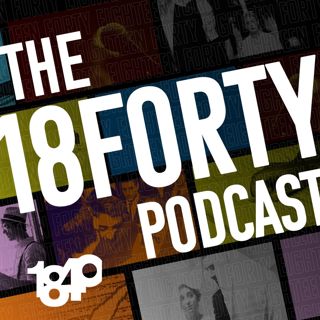
On Loss: A Parent
In this episode of the 18Forty Podcast, we talk to Dani Ritholtz - rabbi and author - about the loss of his father to further explore Tisha B’Av’s relationship to loss.Dani Ritholtz lost his father to Pancreatic cancer in 2014. As part of his grieving process, he wrote a book exploring the development of his relationship to his loss throughout the ordeal. Here Dani talks about the book and its subject matter: how he dealt with the loss of his father.- How does it feel for a family member to battle a possibly fatal illness?- How did Dani and those around him cope with their loss?- What effects did it have on their mental health?- Why did Dani write his book?Tune in to hear a conversation on grief and coping.Musical Credit:Eim Eshkachech by Itzhak Azulai https://www.youtube.com/watch?v=Z0tldz_-0yUReferences:As a Ram Yearns for the Brook by Dani Ritholtz https://www.amazon.com/As-Ram-Yearns-Brook-Journey-ebook/dp/B08FBCX11ZTime Travel: A History by James Gleick https://www.amazon.com/Time-Travel-History-James-Gleick/dp/0307908798Kol Dodi Dofek by Rav Joseph B. Soloveitchik https://www.amazon.com/Kol-Dodi-Dofek-Listen-Beloved/dp/0881258970Become a supporter of this podcast: https://www.spreaker.com/podcast/18forty-podcast--4344730/support.
16 Jul 20211h 17min

On Loss: A Spouse
In this episode of the 18Forty Podcast, we talk to Rabbi Josh Grajower - rabbi and educator - about the loss of his wife, as well as the loss that Tisha B’Av represents for the Jewish People.The Jewish people mourn every year on Tisha B’Av, but it can still be hard to connect with the feelings of the day. Mourning is felt most strongly with those closest to us, and while the things we mourn on Tisha B’Av are of great religious and historical significance, they can feel foreign. Rabbi Grajower lost his wife, Danielle Grajower, giving him intense insight into the mourning process.- How does it feel to lose someone close to you?- How do you deal with the finality?- How does time affect the emotional wound?- How can your loss affect your relationship with God?Tune in to hear a conversation on loss and mourning.Musical Credit:Eim Eshkachech by Itzhak Azulai https://www.youtube.com/watch?v=Z0tldz_-0yUReferences:Holocaust Commemoration and Tish'a be-Av: The Debate Over "Yom ha-Sho'a" by Rabbi Jacob J. Schacter https://www.jstor.org/stable/23263711A Grief Observed by CS Lewis https://www.amazon.com/Grief-Observed-C-S-Lewis/dp/0060652381It’s OK That You’re Not OK by Megan Devine https://www.amazon.com/Its-That-Youre-Not-Understand/dp/1622039076The Unwinding of a Miracle by Julie Yip-Williamshttps://www.amazon.com/Unwinding-Miracle-Memoir-Death-Everything/dp/0525511350Become a supporter of this podcast: https://www.spreaker.com/podcast/18forty-podcast--4344730/support.
13 Jul 20211h 14min

Jewish Peoplehood Roundup
In this episode of the 18Forty Podcast, our host, David Bashevkin, reflects on 18Forty’s Jewish peoplehood episodes.David reassesses 18Forty’s Jewish peoplehood topic from September 2020, which featured Rav Aaron Lopiansky, Laura Adkins, Bethany Mandel, and Samuel Freedman. Using highlight clips from those episodes, David explores what brings together a group of people to form a peoplehood, the ways the Jewish community is divided, and the effect these divisions have on the larger people.- Why did 18Forty choose this topic?- What constitutes a peoplehood?- How does a peoplehood remain united in the face of internal conflict?- Can it overcome division, even when the division stems from conflicting, deep-seated values, to remain united?- Can someone truly love a whole nation?Tune in to hear David reflect on 18Forty’s Jewish peoplehood exploration.For more, visit https://18forty.org/podcast/jewish-peoplehood-roundup/.Become a supporter of this podcast: https://www.spreaker.com/podcast/18forty-podcast--4344730/support.
6 Jul 20211h 16min

Comedy Roundup
In this episode of the 18Forty Podcast, we sit down with our host, David Bashevkin, to reflect on 18Forty’s comedy episodes.David revisits 18Forty’s comedy exploration from July of 2020, featuring comedians Gary Gulman and Leah Forster and Rabbi Daniel Feldman. David once again explores the connections between comedy and life, and how comedy can help cope with tragedy. He also explores some of the qualities of Jewish humor.- Why did 18Forty choose comedy as a topic, and why so early?- What life lessons can comedy teach?- What are some of the characteristics of Jewish comedy and Jewish comedians?Tune in to hear David reflect on 18Forty’s comedy topic.References:https://natebargatze.com/https://en.wikipedia.org/wiki/Mitch_Hedberghttp://www.joanrivers.com/https://18forty.org/articles/gary-gulman-this-impossible-life/The Most Human Human by Brian Christian https://www.amazon.com/Most-Human-Talking-Computers-Teaches-ebook/dp/B004FEG2S6Man’s Search for Meaning by Viktor Frankl https://www.amazon.com/Mans-Search-Meaning-Viktor-Frankl/dp/0807014273/ref=tmm_pap_swatch_0?_encoding=UTF8&qid=&sr= For more, visit https://18forty.org/podcast/comedy-roundup/.Become a supporter of this podcast: https://www.spreaker.com/podcast/18forty-podcast--4344730/support.
29 Jun 20211h 10min

David Bashevkin: The Anniversary Episode
In this anniversary episode of the 18Forty Podcast, we sit down with our host, David Bashevkin, to reflect on the last year of episodes.18Forty has explored many important and interesting topics and has helped build a community of people interested in exploring these ideas. But it has been a big undertaking involving many unforeseen factors and complications.- How has 18Forty decided what topics and guests to feature?- What has David learned about the process of interviewing?- How has 18Forty been affected by the community growing around it?- How has 18Forty dealt with controversy?Tune in to hear David reflect on 18Forty’s beginning and growth over the last year.References:Top Five by David Bashevkin https://www.amazon.com/Top-5-Dovid-Bashevkin/dp/1600918174For more, visit https://18forty.org/Become a supporter of this podcast: https://www.spreaker.com/podcast/18forty-podcast--4344730/support.
22 Jun 202157min
![Rabbi Jacob J. Schacter: Should We Censor Jewish History? [Censorship 3/3]](https://cdn.podme.com/podcast-images/D79089FBEF78B78B9B1A2A8AFD27F6A1_small.jpg)
Rabbi Jacob J. Schacter: Should We Censor Jewish History? [Censorship 3/3]
In this episode of the 18Forty Podcast, we talk to Rabbi Jacob J. Schacter - rabbi, professor, and historian - about censorship as it relates to Jewish history.Though censorship exists in many areas, it is particularly interesting to analyze it from the lens of Jewish history. It can be tempting to idealize the lives of gedolim when writing about them, or to whitewash parts of history that don’t fit with our modern conceptions. It can be tricky to navigate history while preserving a given set of values.- How should we study Jewish history?- Is there room for idealization or censorship?- Or should we always seek the historical truth?- What should we do when history is problematic in the face of our values?Tune in to hear a conversation on censorship and Jewish history.References:Zakhor by Yosef Hayim Yerushalmi https://www.amazon.com/Zakhor-Jewish-History-Lectures-Studies/dp/0295975199On the Morality of the Patriarchs: Must Biblical Heroes be Perfect by Rabbi JJ Schacter https://www.academia.edu/37135943/Jacob_J_Schacter_On_the_Morality_of_the_Patriarchs_Must_Biblical_Heroes_be_Perfect_in_Zvi_Grumet_ed_Jewish_Education_in_Transition_Proceedings_of_the_First_International_Conference_on_Jewish_Education_Teaneck_2007_1_9Changing the Immutable by Marc Shapiro https://www.amazon.com/Changing-Immutable-Orthodox-Judaism-Rewrites/dp/1904113605Facing the Truths of History by Rabbi JJ Schacter https://www.yutorah.org/lectures/lecture.cfm/704426/rabbi-dr-jacob-j-schacter/facing-the-truths-of-history/Rabbi Jacob Emden: Life and Major Works by Rabbi JJ Schacter https://www.google.com/books/edition/Rabbi_Jacob_Emden/-wMmAQAAIAAJ?hl=en For more, visit https://18forty.org/censorship/. Rabbi Jacob J. Schacter is a rabbi and historian of intellectual trends in Orthodox Judaism. As a Rosh Yeshiva and professor of Jewish History and Jewish Thought at Yeshiva University, Rabbi Schachter lives at the crossroads of the religious and academic worlds. Rabbi Schachter holds a Ph.D. in Near Eastern Languages from Harvard University, where he wrote his dissertation on Rabbi Yaakov Emden. He is the author of several works, and is a mentor to many rabbis in the Jewish community. Rabbi Schachter brings to 18Forty his knowledge, wisdom, and nuanced thinking about the questions of censorship and how we approach Jewish history.Become a supporter of this podcast: https://www.spreaker.com/podcast/18forty-podcast--4344730/support.
15 Jun 20211h 30min
![Jonathan Rosenblum: Communal Boundaries and Cancel Culture [Censorship 2/3]](https://cdn.podme.com/podcast-images/D79089FBEF78B78B9B1A2A8AFD27F6A1_small.jpg)
Jonathan Rosenblum: Communal Boundaries and Cancel Culture [Censorship 2/3]
In this episode of the 18Forty Podcast, we talk to Jonathan Rosenblum - journalist and author of multiple ArtScroll biographies - about censorship and specifically how it applies to biographies.One of the many areas in which censorship can be exercised is biography writing. Certain biographies of gedolim have been criticized for censoring their life stories to mask their imperfections, distorting history in the process. But censorship isn’t always about distorting the facts and may instead be about cultivating a certain look or feel.- What is the goal of censoring the biographies of gedolim?- What impact does it have?- What are the intended effects of the biographies in the first place?- What effects would the uncensored versions have?Tune in to hear a conversation on biographical censorship.References:The Censor, the Editor, and the Text by Amnon Raz-KrakotzkinHidden Diaries and New Discoveries by Avinoʻam RozenaḳPachad Yitzchak: Igrot U’ketavim by Rav Yitzchok HutnerSin•a•gogue by David BashevkinThey Called Him Mike by Jonathan RosenblumBetween Berlin and Slobodka by Hillel GoldbergFor more, visit https://18forty.org/censorship/.Jonathan Rosenblum is a journalist who writes for several Orthodox media publications, most notably through his weekly column in Mishpacha. Before entering journalism, Jonathan attended the University of Chicago, Yale Law School, and Ohr Somayach. Jonathan has written several biographies on Jewish figures, and was a founding writer of the Cross-Currents journal. Jonathan brings to 18Forty his commitment and dedication to the spheres of Jewish public opinion, politics, and religious culture.Become a supporter of this podcast: https://www.spreaker.com/podcast/18forty-podcast--4344730/support.
8 Jun 20211h 3min







